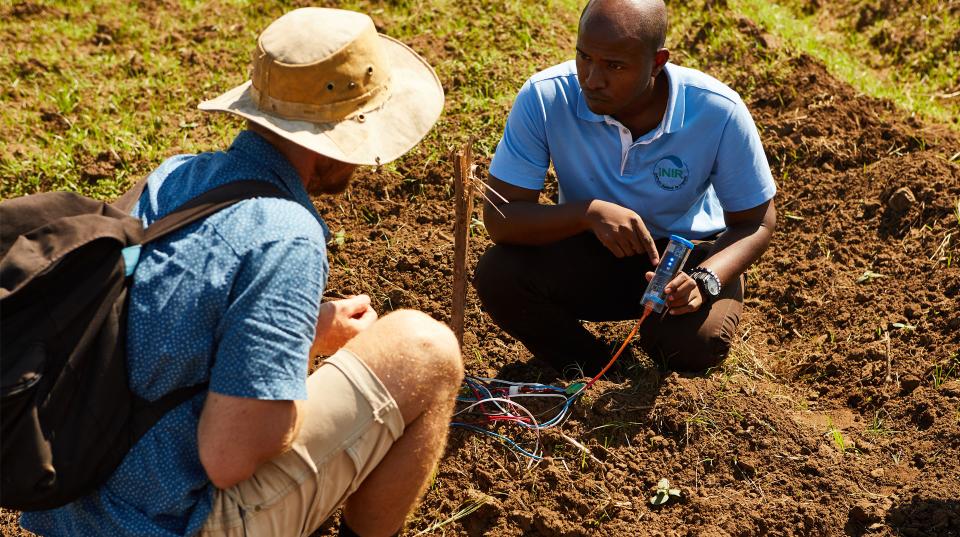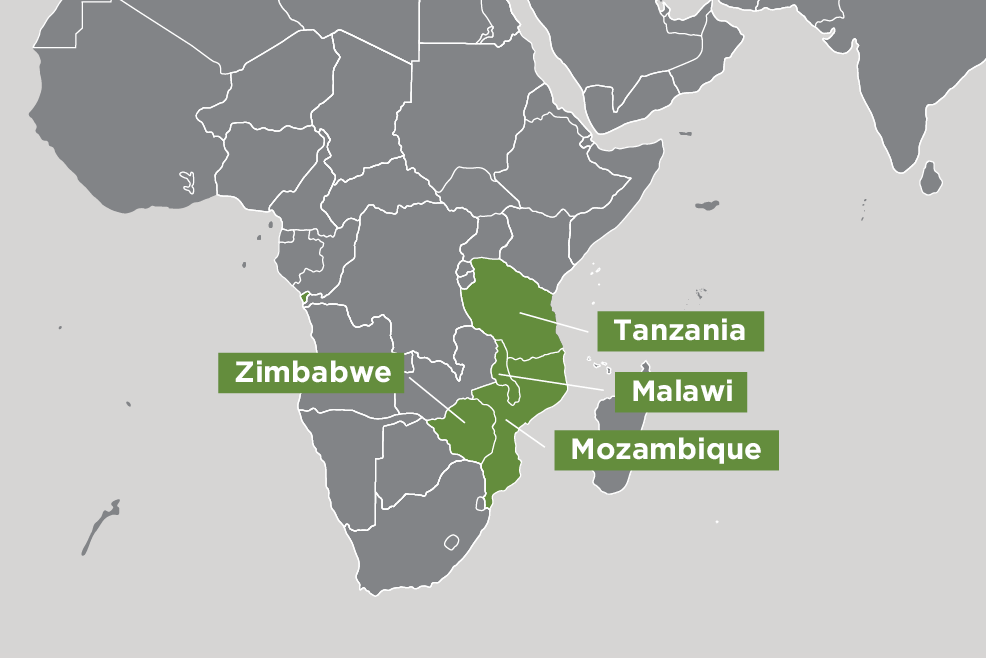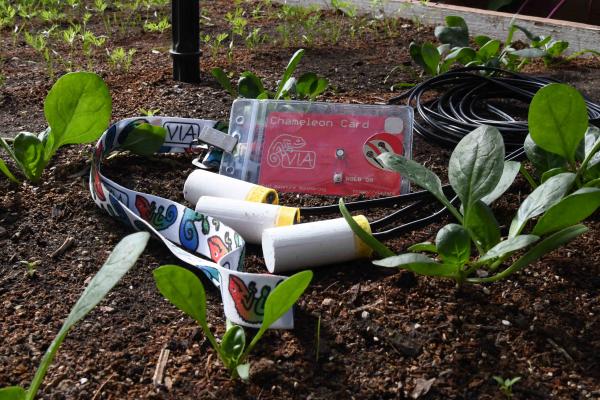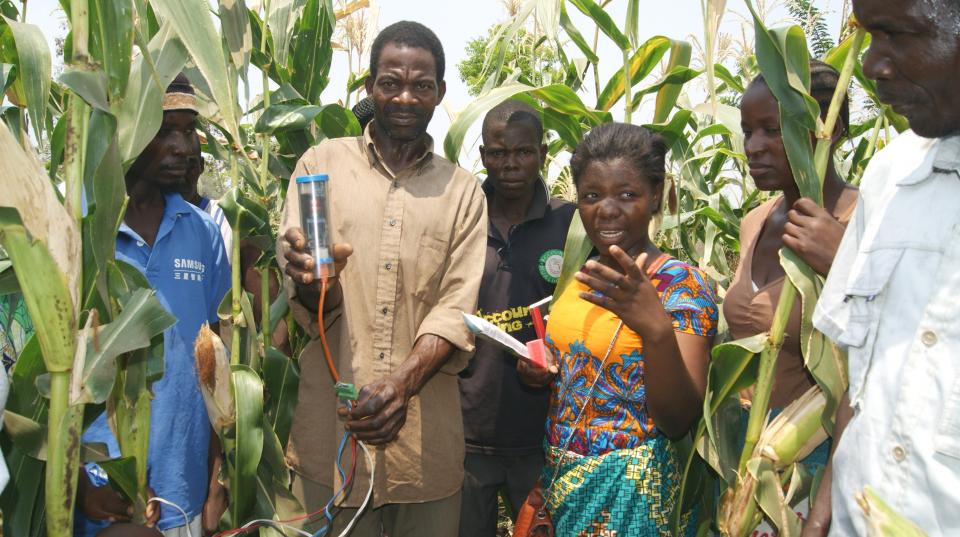Overview
This project initiated a second phase of Virtual Irrigation Academy (VIA) to develop the system from its current function of monitoring water and solutes to a water learning and governance platform that can support the needs of smallholder farmers and address the information deficits at the scheme to national levels.
Approximately 20% of the world’s cultivated land is irrigated, producing high-value crops, nutritional diversity, rural employment and about 40% of global food requirements. However, irrigation in sub-Saharan Africa has failed to live up to its potential. Irrigated land is currently less than 5% of the total cultivated area, far lower than any other region worldwide, and expansion has been slow.
Virtual Irrigation Academy Phase 1 (LWR/2014/085) developed tools that measure soil water, nitrate and salt using colours as thresholds for action. The aim was to build a people-centred learning system that could capture and document the experiential knowledge of farmers.
The VIA can deliver three components necessary to improve the return on investment in the small-scale irrigation sector. First, it provides cost-effective technology to help farmers manage their water, nutrients and salt. Second, those responsible for managing, maintaining and repairing irrigation schemes need information on which to base their decisions to ensure efficient and equitable water distribution. Third, donors who invest millions in irrigation infrastructure need ways to track the performance of their investments and the feedback necessary for ongoing improvement.
The VIA has proved to be popular with farmers, such that by October 2018 the VIA had collected data from over 2500 crops in more than 15 countries. This unique and growing data set can be exploited to provide new value propositions for the irrigation sector.
Project outcomes
- Established a VIA production facility in Africa, delivering a reliable supply of high quality and cost-effective tools.
- Developed data analytics to support learning and management for farmers, extension workers, scientists, government agencies and investors in irrigation infrastructure.
- Identified private sector companies that can produce and distribute equipment, deliver VIA services on the ground and engage in public-private partnerships.
Summary of outcomes to date
2021–22
- The VIA has tens of thousands of sensors deployed around the world, the ability to expand production and many partners wanting to engage.
- We have developed diagnostics and QA systems on our production line that allow us to do rapid prototyping for new and improved products.
- The new VIA website went live with ‘how to’ videos and impact stories. We have had over 200 water professionals complete our 5 hours on-line training course called “The Water School”.
- Data analytics around irrigation management is unique to the VIA because the sensor data can be up scaled and averaged across crop types, schemes and years. This allows new questions to be asked around the equity of water distribution, whether one scheme performs better than a neighbour or whether a scheme is improving over time.
- The Virtual Irrigation Academy became a non-for-profit entity in January 2022, with the explicit purpose of serving smallholder irrigators earning less than $5 per day.








